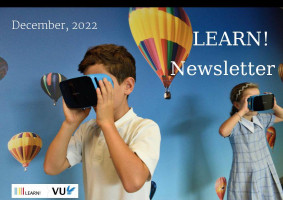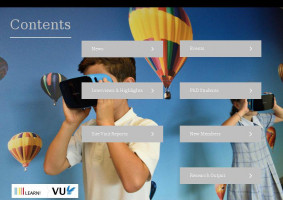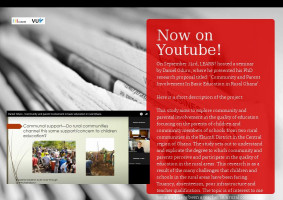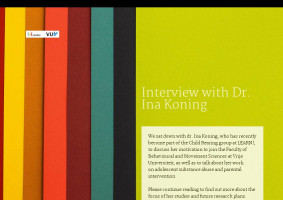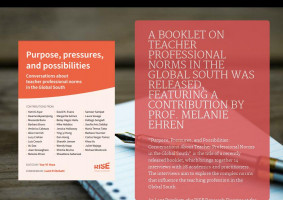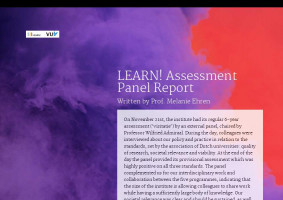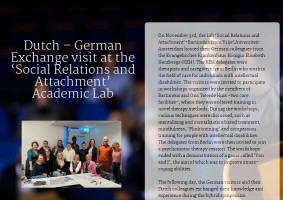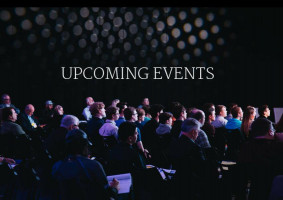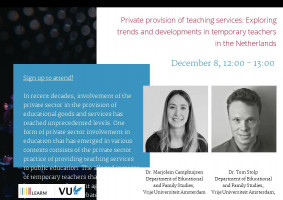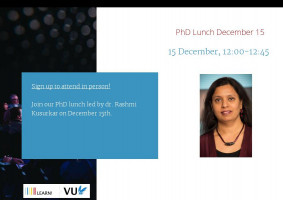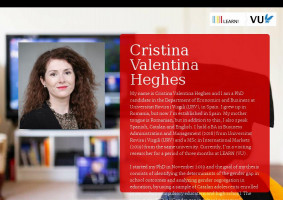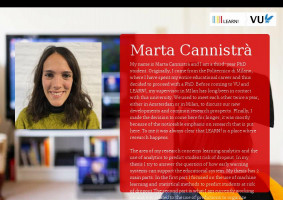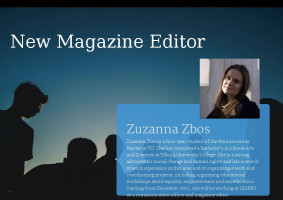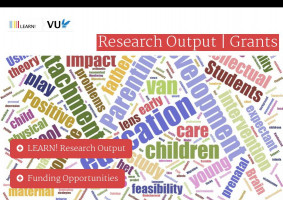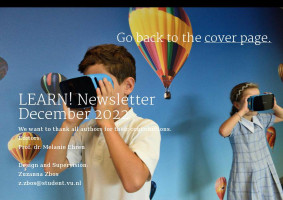We sat down with dr. Ina Koning, who has recently become part of the Child Rearing group at LEARN!, to discuss her motivation to join the Faculty of Behavioural and Movement Sciences at Vrije Universiteit, as well as to talk about her work on adolescent substance abuse and parental intervention.
Please continue reading to find out more about the focus of her studies and future research plans.
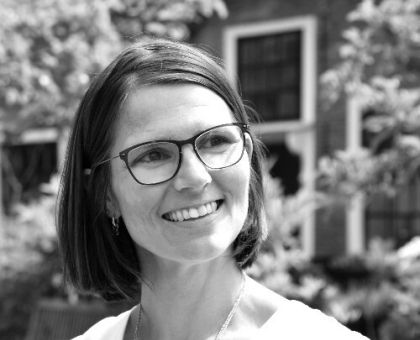
Could you tell us a bit about your Professional background?
I started working at Leiden University as a teacher in 2003; then in 2006 I began my work at Utrecht University, where I stayed for seventeen years. In September this year, I started my work at Vrije Universiteit Amsterdam and I can say I am already fully invested: I am a lecturer, I coordinate two courses and I supervise master students.
How would you describe the main focus of your research throughout the years?
My research has three main areas of interest: adolescent substance abuse, digital media use and preventive intervention.
My initial focus was on preventive intervention, targeting adolescent onset of drinking. Together with my colleagues, we investigated the effect of different types of interventions, such as parent- or student-only, as well as a combination of these two. It led us to some very insightful findings, namely that targeting either parents or students alone isn’t effective- you should target both of them at the same time. That is also what we find across several other topics of our research- multicomponent interventions are usually more effective than the single component strategies.
From there onwards I continued my research in substance use and prevention and the role of parents in adolescent drinking behavior. At some point I broadened my scope to digital media use, which since then became one of the main topics I do research on.
What aspect of digital media use do you addres in your research and how do you target it?
Our focus is on the problematic aspects of digital media like addiction. Social media use in itself isn't harmful to most users. However, there are particular groups of young kids who are involved in a problematic way of using it, which causes them to get into trouble.
We measure it with addiction-like symptoms, similar to the ones used to diagnose the Internet Gaming Disorder.
It is a more objective way of measuring social media use, because the IGD is an already recognized addiction- it is even contained in DSM-V.
Before turning to this method, we did some studies based on self-reports, which turned out to be highly problematic. Large groups of participants tend to underestimate their social media use, and the others overestimate it. There is only a small proportion of youth who can report it correctly, thus we tend to rely on symptom-measurement methods instead.
what was the main reason why you decided to Transition to vu after seventeen years of working in utrecht?
It was the level of commitment and investment in research from a whole variety of perspectives that was really noticeable at VU. After 17 years I had made a decision to switch; it was a tough one, because I was part of Utrecht University for such a long time. But I really felt that at VU more emphasis was put on the intervention part which I also focus on in my research, as well as the tight connection between theory in research and practice.
would you say that the possibility to apply theoretical implications of research into practice is something you personally value a lot?
Yes, and I always try to do that. I always try to maintain a connection between theory and practice, as well as to connect with the stakeholders that are relevant to my topic of research. To give a recent example, I am currently conducting a community based intervention- a quasi-experimental trial, where I develop an intervention which is established on a needs assessment done beforehand. What it means is that I first talked to all of the different stakeholders in that community, and only then was I able to decide on the desired outcome. I try to take into account all the different factors which were identified by the stakeholders as relevant in the outcome along with their needs.
BESIDES DOING RESEARCH, DO YOU EVER HAVE OPPORTUNITIES TO ACT ON SMALLER INITIATIVES THAT RELATE TO THE AREA OF YOUR STUDY?
Quite a lot actually. For example tonight I am going to be a guest in a podcast on the topic of digital media use in connection with education and mental health, which is initiated by teachers from a number of Dutch high schools.
The teachers record their own podcasts on topics that are relevant to their students and communities.
If I can, I always contribute to this type of initiative. I try to make connections with the stakeholders in different ways, also by translating my findings and the knowledge back for the target group. I find it important to translate the scientific knowledge into the kind of knowledge that they could understand easily.
Are there any new prospects that became feasible to you by joining vu?
It is related a bit to the content of my research. In Utrecht I was working with an interdisciplinary social sciences group, where we focused on adolescents only. What I am hoping to achieve here at VU and LEARN! is to include a broader range of developmental phases; not just adolescence, but also childhood, to then see how parents can already engage in internet-specific parenting behaviors at that age. It is really important, because that type of behavior doesn't start at the age of 12, it starts way earlier. Hence, I am mostly looking forward to focusing on younger age groups and to see how their parents could be engaged and what kind of strategies are effective for them.
Are there already some projects that you are looking forward to being involved in?
There are some projects concerning digital media use which I am taking along with me from Utrecht. We have a large longitudinal study going on about digital media use in a family context. We have examined 200 full families, that is parents and children, to get a better insight into the situation on a family-level and to find out how parents can supervise their kids and effectively guide them in safe social media use.
Apart from that, there is a new study which was just granted two weeks ago. Together with my colleagues, we will investigate social media use among families with kids who have developmental and learning disabilities. Until now, most studies have been conducted on normative samples, which underrepresented the kids who have developmental struggles. That is why we want to focus on these groups of kids and then see what is the meaning of digital media use for them, and how that differs from the normative sample. In the context of parental supervision, we also want to investigate the differences in how these two groups of parents deal with the issue. That is actually one of the projects that I am really looking forward to.
